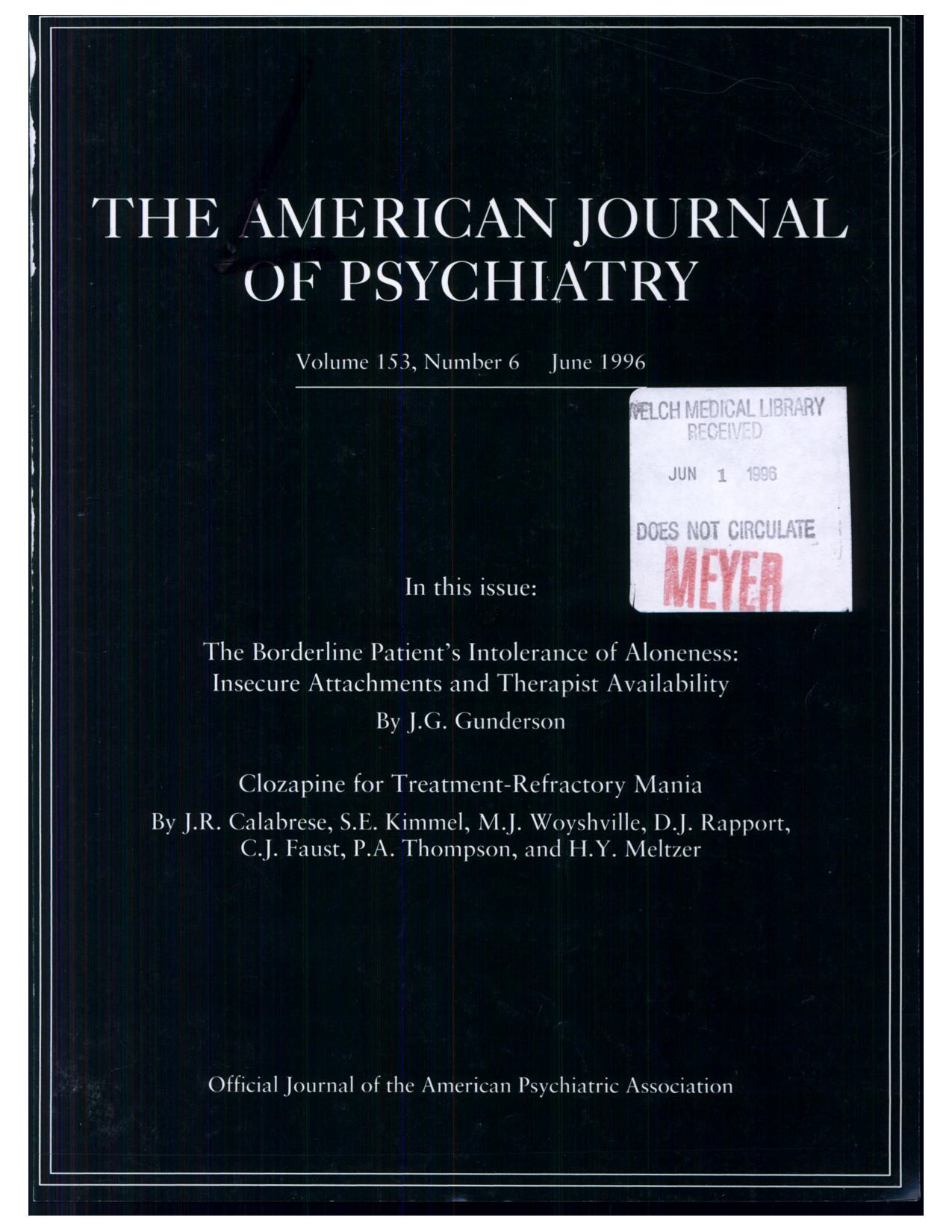Clinical characteristics of Kraepelinian schizophrenia: replication and extension of previous findings
Abstract
OBJECTIVE: Subtypologies of schizophrenia based on cross-sectional criteria, such as the nomenclature of the DSMs, have not been successful in identifying valid diagnostic subgroups among patients with schizophrenia. A subtypology that uses criteria to classify individuals on the basis of longitudinal deficits in self-care may identify a more valid subgroup of schizophrenic patients. METHOD: This study describes the clinical characteristics of a group of schizophrenic patients identified on the basis of a longitudinal criterion: at least 5 years of continuous and complete dependence on others for obtaining and maintaining the basic necessities of life, including food, clothing, and shelter. RESULTS: Sixty-one "Kraepelinian" schizophrenic inpatients, when compared to 80 non- Kraepelinian schizophrenic inpatients who were similar in years of illness, age, and education, demonstrated more severe negative symptoms and more severe formal thought disorder; yet the severity of their delusions, hallucinations, and bizarre behavior did not differ significantly. None of the Kraepelinian patients and eight non- Kraepelinian patients met DSM-III-R criteria for schizoaffective disorder. CONCLUSIONS: Data from this replication study suggest that Kraepelinian schizophrenic patients, identified on the basis of a longitudinal course characterized by severe dysfunctions in self-care, may represent an alternative, and possibly more valid, method of subtyping schizophrenia.
Access content
To read the fulltext, please use one of the options below to sign in or purchase access.- Personal login
- Institutional Login
- Sign in via OpenAthens
- Register for access
-
Please login/register if you wish to pair your device and check access availability.
Not a subscriber?
PsychiatryOnline subscription options offer access to the DSM-5 library, books, journals, CME, and patient resources. This all-in-one virtual library provides psychiatrists and mental health professionals with key resources for diagnosis, treatment, research, and professional development.
Need more help? PsychiatryOnline Customer Service may be reached by emailing [email protected] or by calling 800-368-5777 (in the U.S.) or 703-907-7322 (outside the U.S.).



